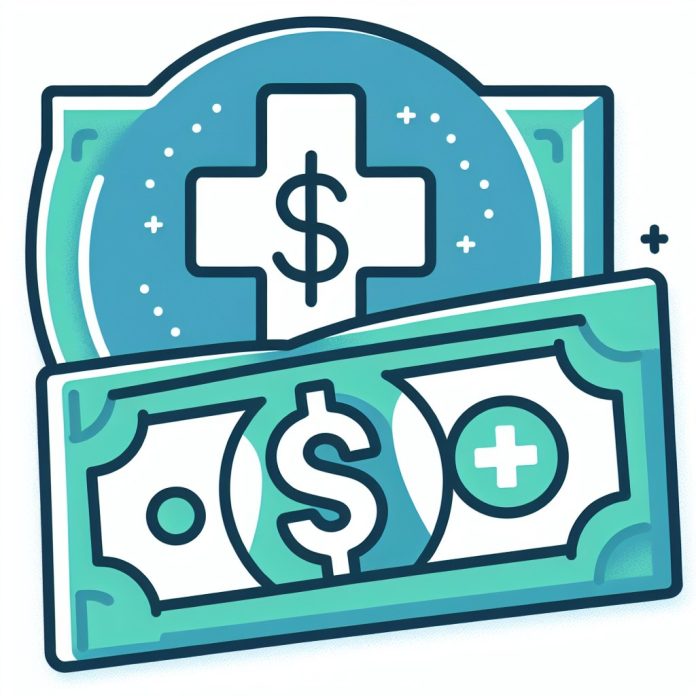
Does the U.S. Pay for Israeli Health Care? Unraveling the Facts
The question “Does the U.S. pay for Israeli health care?” often surfaces in discussions about international aid and foreign relations. This query reflects broader concerns about the allocation of U.S. taxpayer dollars and the extent of financial support provided to other nations. In this comprehensive article, we will explore the intricacies of U.S. aid to Israel, focusing specifically on health care funding, while addressing common misconceptions and providing a clear understanding of the financial relationship between the two nations.
Understanding U.S. Aid to Israel
📈 Historical Context
The United States has been a significant ally of Israel since the establishment of the Israeli state in 1948. Over the decades, U.S. aid to Israel has encompassed various sectors, including military, economic, and humanitarian assistance. The foundation of this support is rooted in geopolitical, strategic, and ideological factors.
💵 Types of Aid
- Military Assistance: The bulk of U.S. aid to Israel is in the form of military assistance. This includes grants for purchasing American military equipment, ensuring Israel’s qualitative military edge in the region.
- Economic Support: Economic aid has historically been provided to support Israel’s economic stability and development. However, this form of aid has decreased significantly over the years.
- Humanitarian Aid: Humanitarian assistance, including health care support, is provided in times of crisis or for specific projects. This form of aid is not a significant portion of the overall aid package.
Health Care in Israel
🏥 Overview of Israeli Health Care System
Israel boasts a robust and efficient health care system, which is often ranked highly in global comparisons. The system is based on the principles of universal coverage and accessibility, funded primarily through taxation and health insurance premiums.
📊 Funding Sources
- Government Funding: The Israeli government funds a substantial portion of the health care system through taxation.
- Health Insurance: Israeli residents are required to have health insurance, provided by four health maintenance organizations (HMOs). These HMOs are funded through premiums and government allocations.
- Private Payments: Additional funding comes from private payments for supplemental insurance and out-of-pocket expenses.

U.S. Contributions to Israeli Health Care
🔍 Dissecting the Myths
There is a common misconception that the U.S. directly funds Israeli health care services. In reality, the U.S. does not allocate direct financial aid specifically for Israel’s health care system. Here’s a closer look at how U.S. aid impacts Israeli health care indirectly:
- Military Aid Reallocation: While military aid forms the largest portion of U.S. assistance, it indirectly frees up Israeli government funds that can be allocated to other areas, including health care. However, this is not a direct funding mechanism for health services.
- Research Collaborations: The U.S. and Israel collaborate extensively on medical research and technological innovations. Joint research projects and shared advancements in medical technology contribute to the health care sector in both countries.
- Humanitarian Assistance: In times of crisis, such as natural disasters or conflicts, the U.S. has provided humanitarian aid that may include medical supplies and services. However, this is situational and not a regular form of health care funding.
📘 Specific Programs and Projects
- Joint Research Initiatives: Programs like the U.S.-Israel Binational Science Foundation (BSF) fund joint research projects, including those in medical fields. These collaborations enhance the capabilities of both nations in health care research and development.
- Humanitarian Aid Programs: The U.S. Agency for International Development (USAID) occasionally funds specific health-related projects in Israel, particularly those that benefit vulnerable populations or promote regional stability.
Analyzing the Impact
🌍 Geopolitical Considerations
The strategic partnership between the U.S. and Israel ensures that both nations benefit from shared advancements in various sectors, including health care. The indirect benefits of U.S. aid to Israel extend beyond immediate financial assistance, fostering a collaborative environment that promotes innovation and progress.
🔬 Advancements in Health Care
- Medical Technology: The partnership has led to significant advancements in medical technology. Innovations developed through U.S.-Israeli collaborations are often used in both countries, enhancing the overall quality of health care services.
- Research and Development: Joint research initiatives have resulted in breakthroughs in medical science, benefiting global health care communities.
💡 Policy Implications
Understanding the dynamics of U.S. aid to Israel is crucial for informed discussions on foreign aid policies. Clear insights into how aid is allocated and its indirect effects on sectors like health care can guide policy decisions and public opinion.
Conclusion
The question “Does the U.S. pay for Israeli health care?” is multifaceted and requires a nuanced understanding of the financial and strategic relationship between the two nations. While the U.S. does not provide direct funding specifically for Israeli health care services, the substantial military and economic aid indirectly supports the Israeli government’s ability to allocate resources to various sectors, including health care. Additionally, collaborative research and technological advancements fostered by U.S.-Israeli partnerships significantly benefit the health care systems of both countries.
For those interested in the implications of international aid and its impact on domestic sectors, this analysis highlights the importance of comprehending the broader context and indirect benefits of such financial relationships. As global health care challenges continue to evolve, the collaborative efforts between nations like the U.S. and Israel remain vital in addressing these issues and promoting advancements that benefit people worldwide.




















